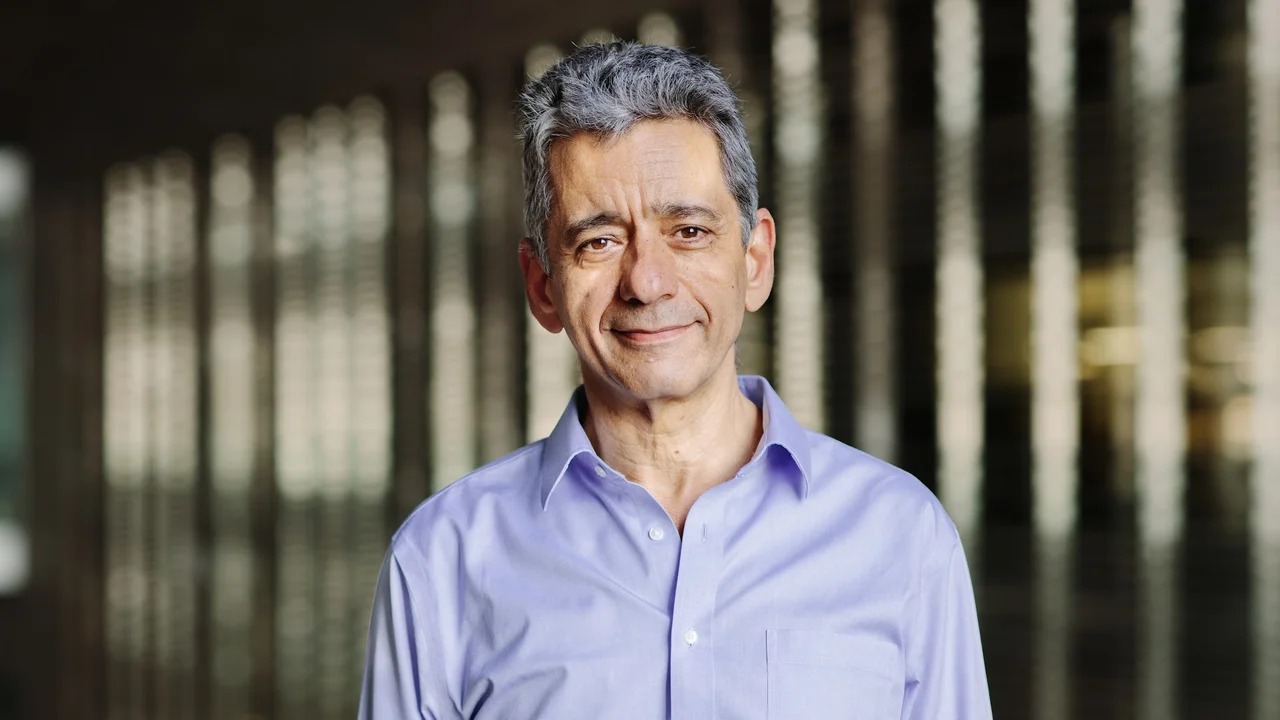
Omar Knio
- Dean, Computer, Electrical and Mathematical Sciences and Engineering
- Vice President, Education and Academic Affairs, King Abdullah University of Science and Technology
- Professor, Applied Mathematics and Computational Science
- Principal Investigator, Omar Knio Research Group
Professor Knio focuses on developing state-of-the-art methods and algorithms for simulating complex multiscale systems, and their implementation to the analysis and optimization of renewable energy systems.
Biography
Omar Knio received his Ph.D. in mechanical engineering in 1990 from the Massachusetts Institute of Technology (MIT) in the United States. He held a postdoctoral associate position at MIT before joining the mechanical engineering faculty at Johns Hopkins University in 1991. In 2011, he joined the Department of Mechanical Engineering and Materials Science at Duke University, where he also served as associate director of the Center for Material Genomics. In 2012, he was named the Edmund T. Pratt, Jr. Professor of Mechanical Engineering and Materials Science at Duke.
In 2013, Knio joined the Applied Mathematics and Computational Sciences (AMCS) Program at KAUST, where he also served as deputy director of the SRI Center for Uncertainty Quantification in Computational Science and Engineering and as the interim dean of the Computer, Electrical and Mathematical Sciences and Engineering (CEMSE) Division. In 2024, he was appointed associate vice president of National Partnerships, Engagement and Academic Liaison, at the KAUST National Transformation Institute.
He is a founding associate editor of the SIAM/ASA Journal on Uncertainty Quantification and currently serves on the editorial boards of the International Journal for Uncertainty Quantification and Theoretical and Computational Fluid Dynamics.
Knio has received several awards, including the Associated Western Universities Faculty Fellowship Award in 1996, the Friedrich Wilhelm Bessel Award in 2003, the R&D 100 Award in 2005, the Distinguished Alumnus Award from the American University of Beirut in 2005, and the Abdul-Hameed Shoman Award for Arab Researchers in 2019.
Research Interests
Professor Knio’s research interests include uncertainty quantification, Bayesian inference, combustion, oceanic and atmospheric flows, physical acoustics, energetic materials, microfluidic devices, renewable energy systems, high-performance computing, optimization under uncertainty, and data-enabled predictive science.
Professional Profile
Awards and Distinctions
- R&D 100 Award, 2005
- Distinguished Alumnus Award, American University of Beirut, 2005
- Friedrich Wilhelm Bessel Award, Humboldt Foundation, 2003
Professional Memberships
- Member, Co-chair, Chair, IEEE International Symposium on Workload Characterization, 2024
- Member, Co-chair, Chair, IEEE Transactions on Parallel and Distributed Systems, 2024
- Member, Co-chair, Chair, IEEE Transactions on Dependable Systems and Networks, 2024
- Member, Co-chair, Chair, ACM Architectural Support for Programming Languages and Operating Systems, 2024
- Member, SIAM/ASA Journal on Uncertainty Quantification, 2024
- Member, Theoretical and Computational Fluid Dynamics, 2024
Education
- Doctor of Philosophy (Ph.D.)
- Mechanical Engineering, Massachusetts Institute of Technology, United States, 1990
- Master of Science (M.S.)
- Mechanical Engineering, Massachusetts Institute of Technology, United States, 1986
- Bachelor of Engineering (B.Eng.)
- Mechanical Engineering, American University of Beirut, Lebanon, 1984
Quote
When in doubt, compute!
Questions and Answers
Why KAUST?
The vision, the faculty, the students, the resources, and the high-impact opportunities.
Why uncertainty quantification?
UQ is the end-to-end estimation and analysis of uncertainty in models and their parameters and in model predictions. It plays a fundamental role in the assessment of confidence in predictions and forecasts; validation of scientific and engineering models; model selection and calibration; assimilation of observational data; design optimization; as well as the use of predictions for decision support. The UQ research group focuses on the development of state-of-the-art methods and algorithms, and their implementation to complex problems involving geophysical fluid dynamics, engineered thermo-fluid systems, and optimization under uncertainty.